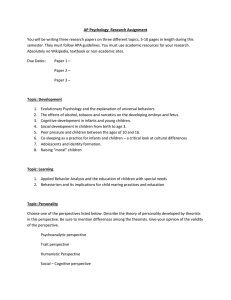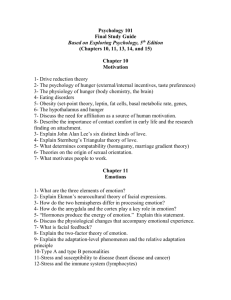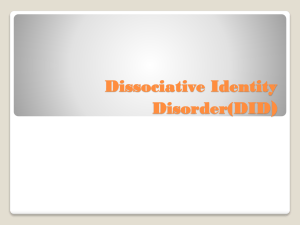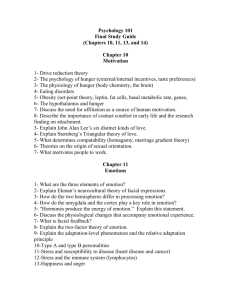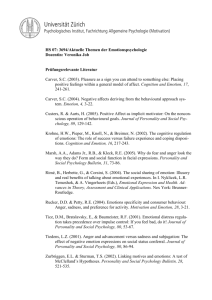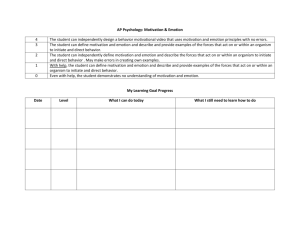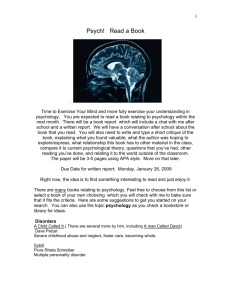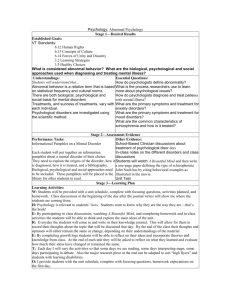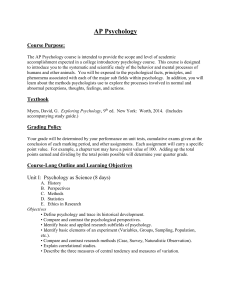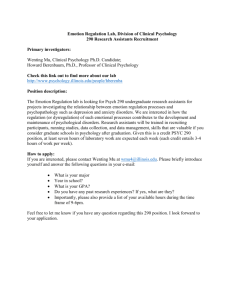Course Syllabus - Riverside Local Schools
advertisement
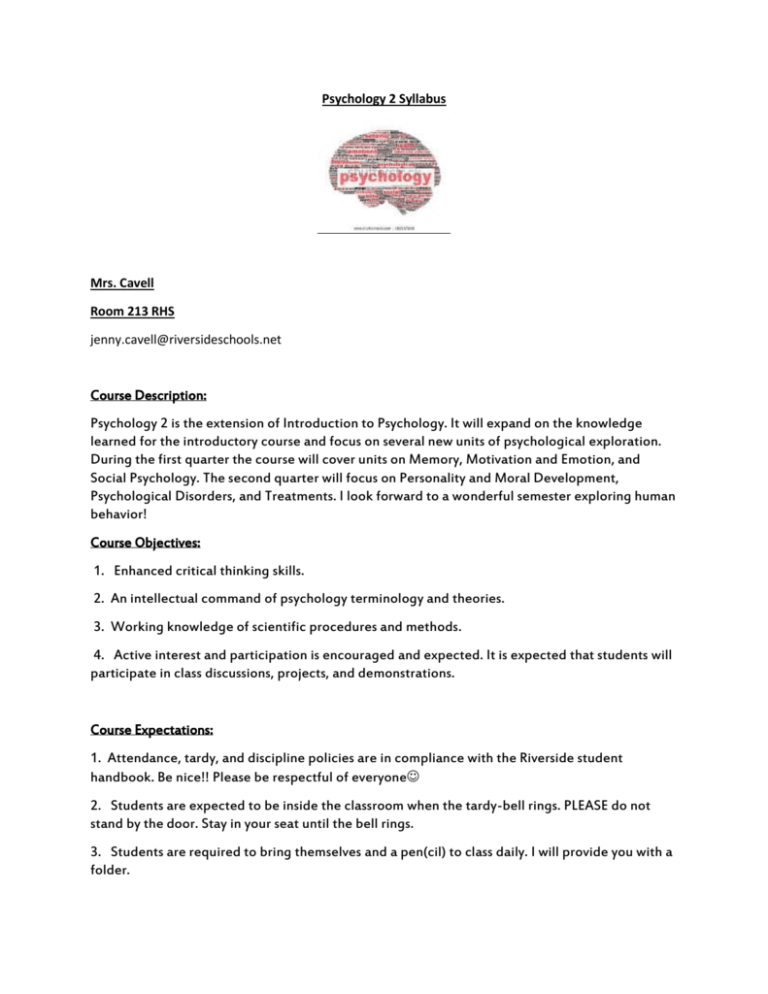
Psychology 2 Syllabus Mrs. Cavell Room 213 RHS jenny.cavell@riversideschools.net Course Description: Psychology 2 is the extension of Introduction to Psychology. It will expand on the knowledge learned for the introductory course and focus on several new units of psychological exploration. During the first quarter the course will cover units on Memory, Motivation and Emotion, and Social Psychology. The second quarter will focus on Personality and Moral Development, Psychological Disorders, and Treatments. I look forward to a wonderful semester exploring human behavior! Course Objectives: 1. Enhanced critical thinking skills. 2. An intellectual command of psychology terminology and theories. 3. Working knowledge of scientific procedures and methods. 4. Active interest and participation is encouraged and expected. It is expected that students will participate in class discussions, projects, and demonstrations. Course Expectations: 1. Attendance, tardy, and discipline policies are in compliance with the Riverside student handbook. Be nice!! Please be respectful of everyone 2. Students are expected to be inside the classroom when the tardy-bell rings. PLEASE do not stand by the door. Stay in your seat until the bell rings. 3. Students are required to bring themselves and a pen(cil) to class daily. I will provide you with a folder. 4. No passes for food or drink. You may bring those items to class as long as you are not tardy and you clean up after yourself. Tentative Course Schedule: Timeline for 2015-2016 Week 1: Welcome Back!! Introductory activities (Personality) Review of Psychological Principles (What do Psychologists DO?) UNIT 1: - Memory- 2 weeks - Describe the function of each of the 3 memory systems - Describe and analyze the various types of memories - Describe the importance of retrieval cues - Describe the effects of interference - Identify factors that influence false memories and memory errors - Discuss problems associated with eye witness testimony and interference Unit 2: - Emotion and Motivation- 1 ½-2 weeks - Discuss the components that make up an emotion - Describe the theories of emotion (James-Lange, Schachter-Singer) - Define motivation - Explain basic principles and theories of motivation - Describe the determinants of hunger and sexual behavior UNIT 3: - Social Psychology- 2 weeks - Identify the ways in which social situations influence the behavior of individuals Identify and discuss how groups/environment can influence social factors such as deindividuation, helping behavior, prejudice, stereotypes, and scapegoating - Discuss the experiments of Asch and Milgram on conformity and obedience - Identify the contexts that maximize or minimize obedience to authority - Describe how attitudes relate to behavior and cognitive dissonance Unit 4: - Personality and Moral Development- 2 weeks - Distinguish between the major approaches to studying personality - Identify id, ego, superego - Explain how ego defense mechanisms protect the individual from anxiety - Identify the 5 psychosexual stages according to Freud - Identify Maslow’s self- actualization theory from his hierarchy of needs - Identify Carl Rogers and his theory of personality - Examine Kohlberg’s Theory of Moral Development - Take, score and evaluate the Myers- Briggs Type Indicator or Kiersey Temperament Sorter Units 5-6:- Psychological Disorders and Treatments- 4-5 weeks - Identify the criteria for defining mental disorders Describe the symptoms of generalized anxiety disorder, phobias, obsessive-compulsive disorder, and posttraumatic stress disorder - Explain somatoform and mood disorders - Identify dissociative disorders-especially dissociative identity disorder - Describe the various symptoms and types of schizophrenia - Describe how psychotherapy works and who benefits from it Identify the importance of humanistic therapies and evaluate the effectiveness of Roger’s person-centered therapy - Describe the characteristics of behavior therapy - Describe the features of cognitive-behavioral therapies (CBT) - How does family therapy work - What is the basis behind group therapies Extra-Credit: Every Friday we will have a current events quiz that will consist of 10 questions based on the week’s news. Students are required to get 3 of the 10 correct in order to earn 2 extra credit points. If you do not get 3 or more correct, they are simply thrown away. These can only HELP your grade. If you are absent on the day we take them, you do not make them up! Grading: Grading scale is as follows: 90-100=A 89-80=B 79-70=C 69-60=D 59 and below=F I am looking forward to a great semester! If you have questions or concerns, please contact me at the following email address: jenny.cavell@riversideschools.net. Student Signature:____________________________________________ Parent Signature:______________________________________________
